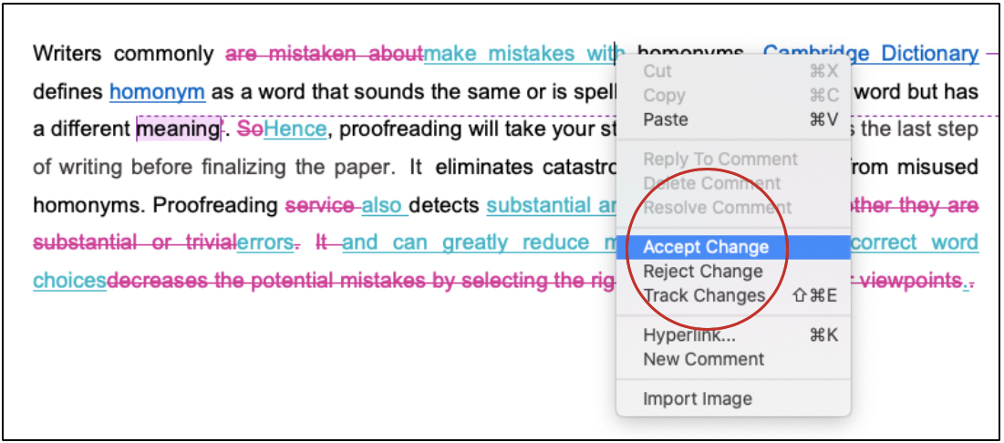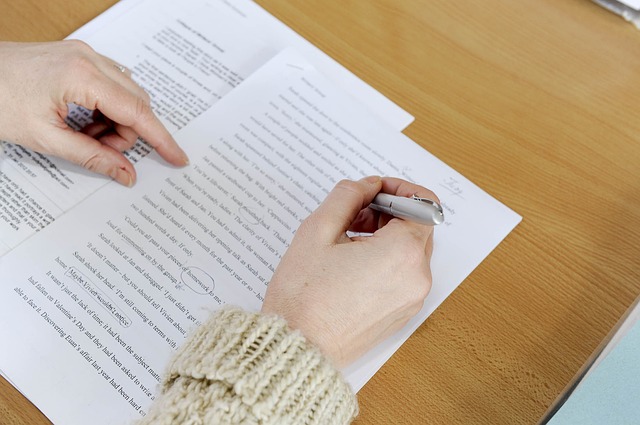The biggest reason why writers opt-out of relying on an editor or proofreader is the myth that they will change your content, material, or style. That they will replace all your hard work and effort with something entirely different, we cannot begin to explain how incorrect that is. Sure, sometimes editors and proofreaders can be overwhelming and may impact your content, but most of the time, their job is to enhance your work so that your content or style reaches its true potential. In this article, you will find a simple guide on how you can communicate better with your editor and proofreader.

The biggest reason why writers opt-out of relying on an editor or proofreader is the myth that they will change your content, material, or style. That they will replace all your hard work and effort with something entirely different, we cannot begin to explain how incorrect that is. Sure, sometimes editors and proofreaders can be overwhelming and may impact your content, but most of the time, their job is to enhance your work so that your content or style reaches its true potential.
However, the key to all this lies in how well you communicate with them. If you do not convey your thoughts and ideas, chances are your editor and proofreader will make changes and suggestions that you won’t like. Therefore, to address that issue, we have brought you a simple guide on how you can communicate better with your editor and proofreader. If this is an area you have been struggling with, let us help you out.
The first thing for you to do is to let them know what you expect out of them. Be specific about what you would like and what you want them to concentrate on. For example, there might be certain writing conventions that you do not want in your document. Let them know so they can edit and proofread your work accordingly.
Being specific about what you want and don’t want from the very get-go helps your editor and proofreader get a gist of what it is that you are looking for. Hence, they can concentrate on only that, save time, and deliver faster.
The next thing for you to do is to explain to your editor and proofreader about your document. Tell them how you have written it, what your context is, where you want to submit or publish it, what kind of target audience you have, what tone you are going for, and so on.
The bottom line is that your editor and proofreader, and yourself should be on the same page for things to proceed smoothly. Once your editor and proofreader have a better understanding of the purpose of your document, they can improvise their services accordingly to suit your needs better.
There might be suggestions from your editor and proofreader that you may not like. In that case, do not be afraid to state it. It is your work, and you are hiring their services — if you don’t like their suggestion, simply say so.
As experienced as they are, it is still your work that you would like in a certain way. This way, you can avoid them ‘‘sabotaging’’ your work. Also, you are letting them know what kind of services and suggestions you are looking for.
Communication is all about exchanging information back and forth. Therefore, the best thing you can do to maintain a good understanding with your editor and proofreader is to communicate effectively. You can sit together and discuss your work, take some third person’s opinion, and work together to make your project the best of the lot. The more you communicate, brainstorm, discuss, analyze — the better your understanding of each other and the process will become.
Last but not least, you need to be honest about the process. If you like it, show your appreciation for the service, rate your editor and proofreader, and send some feedback. However, if you don’t like it, you need to clearly specify it to your editor and proofreader. Do not be afraid of approaching them with an idea, a query, or an issue. After all, you hired them, and the least they can do is to listen to what you have to say.
You may feel like you do not need an editor and proofreader. However, that is a very big mistake. Editors and proofreaders are there to help you improve your work. Editing and proofreading in themselves are important stages of writing that you should not overlook.
While it is true that you can edit and proofread your work yourself but relying on experts and professionals will allow you that additional mile of improvement that you could not go alone. However, a lot rests on how you communicate with them, which is why this article exists. So, the next time you hire an editor and proofreader, make sure you follow these tips and advice to get the best out of your editor and proofreader. After all, they are your best ally when it comes to writing.
Best Edit & Proof expert editors and proofreaders focus on offering manuscripts with proper tone, content, and style of academic writing, and also provide an upscale editing and proofreading service for you. If you consider our pieces of advice, you will witness a notable increase in the chance for your research manuscript to be accepted by the publishers. We work together as an academic writing style guide by bestowing subject-area editing and proofreading around several categorized writing styles. With the group of our expert editors, you will always find us all set to help you identify the tone and style that your manuscript needs to get a nod from the publishers.

You can also avail of our assistance if you are looking for editors who can format your manuscript, or just check on the particular styles for the formatting task as per the guidelines provided to you, e.g., APA, MLA, or Chicago/Turabian styles. Best Edit & Proof editors and proofreaders provide all sorts of academic writing help, including editing and proofreading services, using our user-friendly website, and a streamlined ordering process.
Visit our order page if you want our subject-area editors or language experts to work on your manuscript to improve its tone and style and give it a perfect academic tone and style through proper editing and proofreading. The process of submitting a paper is very easy and quick. Click here to find out how it works.
Our pricing is based on the type of service you avail of here, be it editing or proofreading. We charge on the basis of the word count of your manuscript that you submit for editing and proofreading and the turnaround time it takes to get it done. If you want to get an instant price quote for your project, copy and paste your document or enter your word count into our pricing calculator.
Contact us to get support with academic editing and proofreading. We have a 24/7 active live chat mode to offer you direct support along with qualified editors to refine and furbish your manuscript.
Follow us on Twitter, LinkedIn, Facebook, Instagram, and Medium.
For more posts, click here.
This article discusses how to communicate better with your editor and proofreader. To give you an opportunity to practice proofreading, we have left a few spelling, punctuation, or grammatical errors in the text. See if you can spot them! If you spot the errors correctly, you will be entitled to a 10% discount.

Every book that you read, every newspaper and magazine you subscribed to, every blog that you have come across — all went through the radar of editing and proofreading before coming to you. So, if you are thinking about whether you can make a career in the field of editing and proofreading or not, the answer is yes. The only thing is, you need to have the talents and the qualifications, all of which we will discuss in this article. Therefore, if you are ready, let us look at all the things you need to know to become a proficient editor or proofreader.
Continue Reading
There is always a misconception regarding editing and proofreading services. Although both services are somehow connected to each other, they still have many differences. Proofreading and editing are two major aspects which are to be focused on in order to successfully complete an academic content file. In this guide, the concepts of proofreading and editing will be cleared accordingly, focusing on the basic differences as well as techniques to accomplish both tasks.
Continue Reading
Content marketing is an essential marketing strategy in today’s time. After all, we are exposed to content no matter where we go. In fact, in 2020 alone, the consumption of online content doubled in its rate, and it’s rising every moment. Many marketers have prioritized content marketing as it is the one strategy that is sure to bring you results with lesser investment. But what does it have to do with editing and proofreading? If you are a marketer, or anyone related to either of these two fields, this article will surely be enlightening.
Continue Reading
To err is human, and the same applies to the field of editing and proofreading. No matter how much of an expert you are or how much experience you have, you are bound to make mistakes. Especially for a field like this, where you need to be meticulous, it is natural for you to miss out on words or make some typing errors. This article is more targeted toward people who are new to editing and proofreading and want to avoid making mistakes.
Continue Reading
Proofreaders check the grammatical, punctuation, spelling, and formatting errors of a document and create a proofreading checklist to track the revisions for a flawlessly written academic paper. The type of checklist proofreaders choose to utilize depends on the type of paper (e.g., dissertations, essays, e-books, or blog posts) they are working on.
Continue Reading